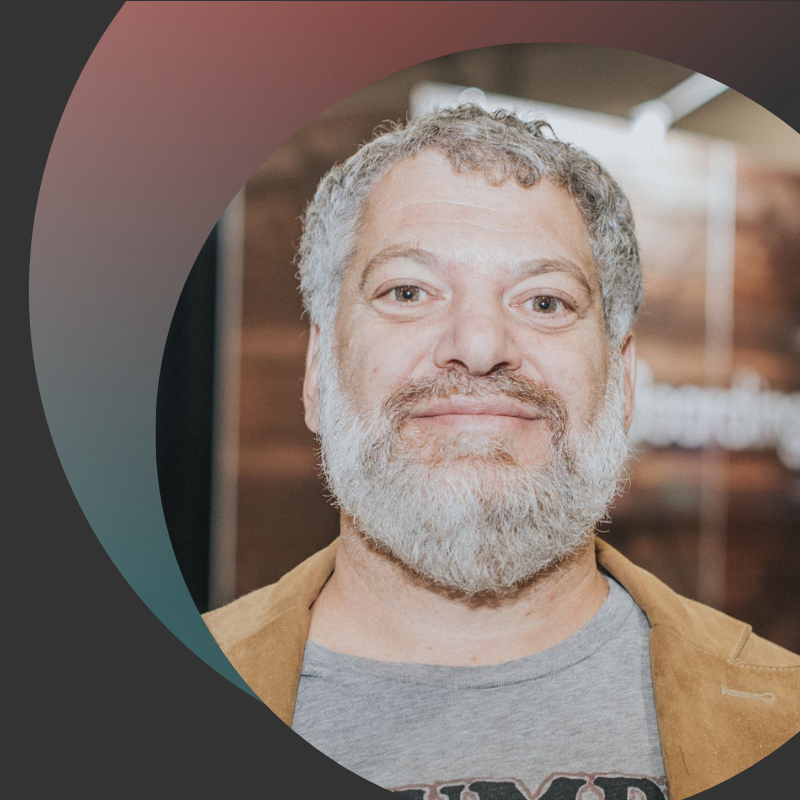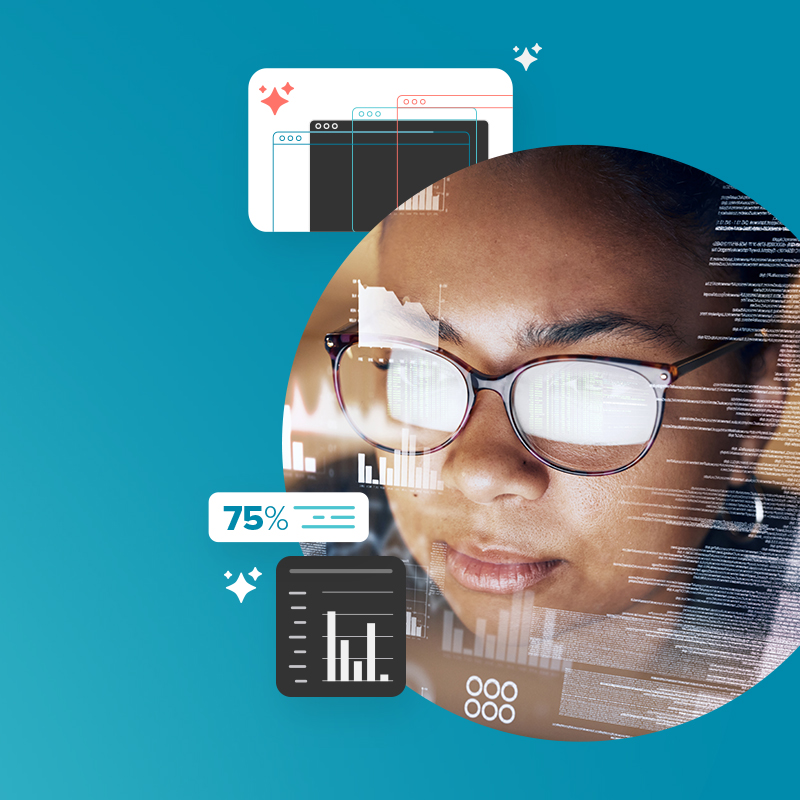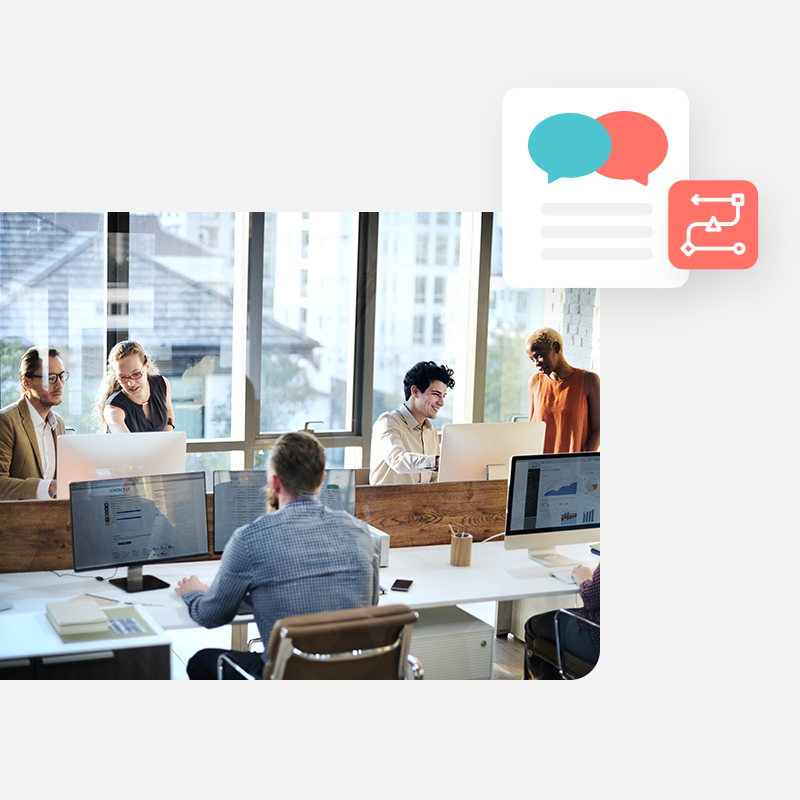On this episode of the People Fundamentals podcast, we’re joined by Dr. Charles Handler, an industrial-organizational psychologist with a wealth of experience in assessments and hiring strategies. As CEO and founder of Rocket-Hire, Charles helps enterprise organizations develop strategies and processes for pre-hire talent assessments and pre-employment testing.
During the conversation, Charles explains the rapidly evolving landscape of HR technology. We dive deep into the potential impact of AI on recruitment processes, especially in high-volume hiring scenarios where sifting through mountains of data is the norm.
Those same benefits and challenges of applying AI to hiring that we explore apply equally to other aspects of HR, including performance management. That’s because both hiring the right people and managing them after they’re part of the team remain exceedingly challenging to do well. “It’s really hard to predict who’s going to be good at something,” Charles says.
So let’s find out how Charles thinks AI might help us do just that.
Subscribe wherever you listen to podcasts: Apple Podcasts | Spotify | YouTube Music
Make data-based decisions, but practice caution
Data is crucial for bringing some objectivity to the hiring process, especially when you’re responsible for sifting through thousands of resumes to find the right candidates. “There’s just no way that you can look at all those things, so you want to have something that is providing a quality signal,” Charles says. “And those quality signals should not have anything to do with your gender, your age, your ethnicity.”
However, Charles is quick to warn about the complexities involved, such as algorithmic biases. “Even though there’s not a person to see color, age, gender on a resume,” Charles points out, “if you’ve got a system that’s algorithmically biased toward those things — maybe even not by anyone’s fault directly — then you’ve got a byproduct, you’ve got a problem.”
AI is already built into a lot of the hiring tools we use every day, so we need to remain mindful of its potential for perpetuating human bias. Algorithm-based tools for delivering job ads, for instance, are more likely to serve ads to people similar to those already in the role. “People that are qualified, [but] don’t look — on paper or in person — like people that have that job, typically are excluded completely from even seeing the job ad,” Charles says.
Integrate objectivity into your processes
Charles is a huge advocate of hiring process improvements that minimize the risks of bias, specifically pointing out the need for better interviews — a process notorious for introducing bias. “The number one thing I would tell anybody, if you want to really upgrade your hiring process, is look at your interviews,” Charles says. “You need to be doing structured interviews of some sort, you need to have some kind of consistency and some kind of rubric that you’re using on job-related factors.”
We’re bombarded with information everyday, and we need to categorize it to process it — leading to bias. And those reactions become even more complicated in face-to-face settings, when we’re more susceptible to similarity or recency bias. “A lot of times the first people and the last people you interview stick out more than the people in the middle, which is another reason why it’s good to have a structured form you can go back to and compare people on the same scale,” Charles says.
Structured interviews provide an objective rubric to level-set your comparison of individual candidates against job-related criteria, helping you make more informed and objective decisions.
Anticipate and manage individual differences
The inherent unpredictability of human behavior is one of the qualities Charles finds most attractive in his work. “One of the things that really drives what I do is what we call the science of individual differences,” Charles says.
While we can develop algorithms and use data analytics to predict human behavior, we have no guarantees, which can complicate the hiring process. “Interviewers are going to have those individual differences as well as candidates are, and they’ve got to be recognized, but managed,” he continues.
When reviewing tech solutions for your hiring process, be cautious of vendors that overpromise and underdeliver. If a claim sounds too good to be true, it probably is. Look for vendors with a valid method and consistent results.
By incorporating data-driven insights, you can move beyond gut feelings to make more informed decisions in your hiring process.
People in This Episode
Dr. Charles Handler: LinkedIn
Transcript
Dr. Charles Handler:
The number one thing I would tell anybody if you want to really upgrade your hiring process is look at your interviews and you need to be doing structured interviews of some sort. You need to have some kind of consistency and some kind of rubric that you’re using on job-related factors, and not everybody has that, and it’s a really easy switch to make.
Alex Larralde:
Hi everyone, and welcome back to Better Works’ podcast, People Fundamentals. I’m your host, Alex Larralde, senior director of corporate marketing. Better Works’ core belief in people fundamentals revolves around enabling everyone in the workforce to strive for excellence, to foster creativity, and to acknowledge each individual’s contributions. Better Works translates these beliefs into business fundamentals through strategic HR leadership. And in this show, we’re diving even deeper into these principles as we hear from the experts about how you can make them come alive in your organization.
And in this episode, recorded live at HR Tech 2023, I had the pleasure of sitting down with Dr. Charles Handler. Charles and I discussed one of the most challenging aspects of employment: the hiring process. Charles is the CEO and founder of Rocket Hire, and he has a wealth of experience in assessments and hiring strategies. He believes that when it comes to hiring, that data is just as valuable as more subjective measurements.
He challenges the notion that gut feelings alone can predict success. Through our conversation, Charles and I navigate the evolving landscape of hiring technology with a spotlight on the transformative role of AI. We cover the challenges and promises that AI brings to the hiring process, especially in high-volume scenarios where sifting through mountains of information and applications is the norm.
When you think about biases that may creep up on an AI-assisted hiring process, where do you think bias is most likely to come from? The hiring manager or an AI tool? Charles takes on some common misconceptions in this line of thinking. Spoiler, that bias is probably a lot less likely to come from AI. But the hiring process is not just about assistance from the latest in HR tech. It’s about finding the delicate balance between efficiency and the indispensable human touch.
Charles shares insights on the critical role of structured interviews and the need to recognize and manage individual differences in the hiring landscape. So, get ready for an in-depth exploration of everything hiring. What constitutes having an objective, quality signal in the hiring process? How Charles conceptualizes individuality and recruitment as the “science of individual differences”, and how the hospitality-first nature of New Orleanians has influenced Charles to appreciate individual differences in his work.
Hi everyone. It’s Alex here, and I am super, super excited because my guest sitting with me right now is Dr. Charles Handler.
Dr. Charles Handler:
Hello.
Alex Larralde:
Hello.
Dr. Charles Handler:
How you doing?
Alex Larralde:
Hi.
Dr. Charles Handler:
We just met just a few minutes ago.
Alex Larralde:
We did, but we had an incredible conversation. Everything from Joan Jett to Paul Westerberg. I mean, lots of music.
Dr. Charles Handler:
Lots of music. Could talk about that pretty much forever, right?
Alex Larralde:
I mean, I could for sure. I always joke if I do a career change, I want to be a journalist for Rolling Stone.
Dr. Charles Handler:
That would be really fun.
Alex Larralde:
That would be really fun.
Dr. Charles Handler:
I know.
Alex Larralde:
Yeah. And my talent, my weird talent that I cannot figure out a practical application for is that I can hear a song and tell you the musical influences. I can tell you the other bands that I can hear.
Dr. Charles Handler:
Yeah, that’s cool. So, I saw this thing one time at an art show, and it was a map of the London subway system, but it was divided, it was all musical family trees.
Alex Larralde:
Oh, interesting.
Dr. Charles Handler:
Yeah, it was incredible. You can kind of trace how everything goes. And I remember Pandora, I think they still do it, but they would basically categorize, keyword each song or different influences, musical influences. But I like that too. And I think that’s what a good music journalist can do is be like, “I see this as an amalgamation, a melange, whatever, of this and this.” Music is all about inspiration. I wouldn’t say nothing’s truly new, but I think the best stuff, you’re borrowing a little bit from everywhere, making it your own thing.
Alex Larralde:
Oh yeah. For sure.
Dr. Charles Handler:
I think that goes with anything. Anything.
Alex Larralde:
I agree. And I’m remiss for not telling our listeners here that you’re the CEO and founder of Rocket Hire.
Dr. Charles Handler:
Yeah, Rocket Hire is my company.
Alex Larralde:
Tell me about Rocket Hire.
Dr. Charles Handler:
Yeah, so we’re assessment folk. I’m expertise in assessment. So, I’ve got a doctorate in industrial psychology, and I’ve been doing selection assessment for about 30 years probably. And I’m somewhat unique in just that I can do or I do pretty much a wide variety of things. So, I’m trained to develop tests as a psychometrician, and I can do that, and we do that, but I also am really strong in legal compliance. And then when testing went online in 2000, I worked for the first company putting assessments online. I worked for Monster before as more of a branding person. So, that gave me a really cool worldview that was like, oh, a lot of people in our field, they think making an assessment is the only part of making a hire. But we realized it’s only one piece of a big workflow.
And so you can’t just look at one piece because what comes before it, what goes after it all has to work together. So we do a lot of advising for enterprise companies about assessment strategy, and doing validation and the compliance work. I don’t work for startups, just anything related to assessment, I got my fingers in it somehow.
Alex Larralde:
That’s your world.
Dr. Charles Handler:
Yeah, yeah.
Alex Larralde:
What’s your controversial opinion when it comes to hiring?
Dr. Charles Handler:
I don’t know. Hiring’s really hard. Really hard to predict who’s going to be good at something.
Alex Larralde:
It is.
Dr. Charles Handler:
And a lot of times, I was just having this conversation on another podcast I was on about intelligence. There’s a lot of literature and research in our field that says that the smartest person is always going to do better at any job. And I’m like, well, what if that smart person doesn’t come to work? What if they’re not motivated? What if they don’t like the culture? I mean, it’s got to be a very multifaceted view.
But I think that my controversial thing, not controversial to me, but to a lot of people is just because you think you know, your gut tells you this is a good person to hire, you can’t just go on that. Your gut is important, your experience is important, but why not have some believable, quality data to help support your decision making? And sometimes you might be like, well, I really like this person because they love Joan Jett too. But the reality is, well, let’s take a look at maybe, oh, their complete slacker, their conscientiousness, their attention to detail is horrible. I could see that from this pattern across my questions and interviews and across my assessment results. So who doesn’t want to make an informed decision?
Alex Larralde:
And that’s really interesting too, because, I mean, it’s interesting for a variety of reasons, but we’ve been talking a lot and everybody’s been talking a lot about DE&I, right? And how to get there and what you actually need to do and how you influence your frontline managers for doing the hiring. Because I do think people tend to gravitate toward people they have commonalities with, right?
Dr. Charles Handler:
Yeah, of course.
Alex Larralde:
People who think like them, who maybe look like them, I’m sure there’s similar interests. I mean, who could even hire someone who didn’t like Joan Jett?
Dr. Charles Handler:
It’s comfortable to do that, right?
Alex Larralde:
Exactly.
Dr. Charles Handler:
And if you’re thinking about what you have, you like yourself, hopefully you love yourself, so why not somebody who’s kind of like me?
Alex Larralde:
Yeah, exactly. And that’s something that I think a lot of companies struggle to overcome. Is that part of the work that you’re doing with clients right now? Are they focusing on that? Is that a …
Dr. Charles Handler:
Well, I think it’s about just objective. How do we get some objective signal into our process? It’s especially important in high-volume situations where you really don’t get a lot of time to look at an applicant. Sometimes, maybe never. So if you’ve got to sift through, whether it’s algorithmically through an ATS or, hopefully not, a recruiter with a giant stack of resumes, but it’s just information overload.
And sometimes, we work for a lot of high volume hiring, there’s tens of thousands of applicants. There’s just no way that you can look at all those things. So you want to have something that is providing a quality signal. And so I think that piece of it is really important. And those quality signals should not have anything to do with your gender, your age, your ethnicity. And that’s where some of the AI stuff can get a little dicey, because even though there’s not a person to see color, age, gender on a resume, if you’ve got a system that’s algorithmically biased toward those things, maybe even not by anyone’s fault directly, then you’ve got a byproduct, you’ve got a problem.
Alex Larralde:
Yeah. You’re almost perpetuating the bias.
Dr. Charles Handler:
Yeah. And it starts, I have a really cool graphic that I’ve made where it’s a funnel and it’s all these little different colored balls representing different unique characteristics of people. So, the very first thing that can happen is just who sees job ads? So this is like, how does bias continue to impact you additively down the recruiting funnel or hiring funnel? I won’t name names, whatever, people that serve up job ads, if they’re doing that based on algorithms that are seeing these are the most common people in these jobs, people that are qualified that don’t look or on paper or in person like people that have that job typically are excluded completely from even seeing the job ad.
Alex Larralde:
Wow.
Dr. Charles Handler:
So right there, you’re already just, you’re stuffing your funnel with bias immediately. Then you have what we call recommendation engines. So let’s say a tech system is serving you up applicants, and you’re like thumbs up, thumbs down, thumbs up, thumbs down, or even people who get hired, they get into who you see after that because they train that system. So again, there’s an opportunity for you to have bias, like we were talking about, a like me thing is going to start excluding people algorithmically again.
And actually, assessments get thrown under the bus a lot for being bias problems or people don’t want to use them because they’re worried about the legal aspect, but actually in our field, we’ve been really paying attention to that and looking at tools and their adverse impact, we call it, since the Civil Rights Act in 1964, since the Uniform guidelines in 1978. So we’ve actually cared about it, I think a lot longer than the bigger world. So, the test isn’t always the thing that’s causing the problems. There’s a lot.
And then of course, there’s interviews. So the number one thing I would tell anybody, if you want to really upgrade your hiring process, is look at your interviews, and you need to be doing structured interviews of some sort, you need to have some kind of consistency and some kind of rubric that you’re using on job-related factors. And not everybody has that. And it’s a really easy switch to make. It doesn’t cost a lot to do that.
Alex Larralde:
Yeah. I mean, interviewing can be such a nightmare. I’ve interviewed many times in my career, right?
Dr. Charles Handler:
Me too, yeah.
Alex Larralde:
So you have all these experiences. And I think about some of the interview processes I’ve had where I am either hired or not hired in the end, and there is a lack of consistency for sure. A lot of times even within the same company, or my favorite question is, “Who else have you talked to?” You mean you don’t know? You haven’t discussed me at all. There’s so many strange quirks. What do you think the most common problem is in interviewing that you see? Is it that lack of structure?
Dr. Charles Handler:
Yeah. Oh, definitely. It is, yeah. And of course, when you’re face to face with someone, all those bias, that’s how the human brain works. We’re bombarded with information all the time. So from a cognitive processing standpoint, you’ve got to put things in buckets. You can’t absorb everything. That being said, you can train yourself to be able to really not do that. It’s funny, when I’ve interviewed people, I sometimes feel the biases creeping into my brain, and I have to be like, no, that’s not, you can’t even think about that because that’s not proper. So it’s really hard.
And you’ve got to interview a lot of people. Sometimes you get fatigued. There’s a thing in interviewing too, where a lot of times the first people and the last people you interview stick out more than the people in the middle, which is another reason why it’s good to have a structured forum you can go back to and compare people on the same scale.
Alex Larralde:
Yeah, absolutely.
Dr. Charles Handler:
It can be brutal. I mean, I’ve worked with clients who have an airline, they get 250,000 applications, they open up hiring once a year for flight attendants, and they’ve got people from an RPO reviewing these video interviews and scoring them. And it’s like, how in the hell? Are you just doing that over and over? How are you really … You’re probably just going to be asleep at the wheel, at some point you’re just going to get numb. So there’s no easy answer. I mean, there’s AI interviews and those can work maybe, but …
Alex Larralde:
Interesting. Yeah, a dispassionate, non-sentient robot asks you questions.
Dr. Charles Handler:
Yeah.
Alex Larralde:
I like that idea.
Dr. Charles Handler:
And I saw something here. Again, I don’t even know the name of the company, but it was a very realistic avatar thing that was asking interview questions. So sure, that could work, but I don’t know that every candidate’s going to love something like that.
Alex Larralde:
Yeah. It does kind of neglect the idea that there’s a two-way value exchange in an employment relationship.
Dr. Charles Handler:
There is.
Alex Larralde:
And I do think that we have to interview the company as employees.
Dr. Charles Handler:
100%.
Alex Larralde:
As much as they interview us, right?
Dr. Charles Handler:
I hope that happens more now. If you think about it, we all get excited too about a job. I think sometimes we hear what we want to hear, we see what we want to see. It’s a really cool brand. I fall into that all the time. Like, oh, this is a really cool brand. And I mean, I haven’t interviewed with those, but I could understand that you might just want to work for the brand and just not even be hearing the signals.
And I think as an interviewer, you really have to communicate. I was just talking to a friend of mine here who took a job and he was a bad fit for the role, and he does what I do. And I was like, “Did you get the signal in the interview?” And he’s like, “No, I didn’t really get the signal because I didn’t actually interview with the people that we’re going to be in my team. I interviewed with really high up people.” So it’s also like who’s doing the interview? And as a candidate, maybe there were signals that he missed.
Alex Larralde:
Yeah, absolutely. And that’s what would scare me, I think, in a world where we remove that human element. Maybe there’s a place for it. Maybe it’s a hybrid process. You have the dispassionate objective, if you will, assessor. But then you also have the people who are there to really represent the culture and represent the team, and help you as a candidate understand what you’re getting yourself into should you decide to take this job.
Dr. Charles Handler:
Yeah. Well, one of the things that really drives what I do is what we call the science of individual differences. So that works on the side of the interviewer too. Everybody’s different. We’re all snowflakes. I mean, we are not the same, which is a good thing.
Alex Larralde:
My favorite thing about humans.
Dr. Charles Handler:
Yeah, exactly. It is, right? Interviewers are going to have those individual differences as well as candidates are, and they’ve got to be recognized, but managed. So it’s hard to predict what the hell humans are going to do. Even if you look at turnover, people turnover’s problematic. Sometimes it’s a good thing, but being able to predict that, oh, your spouse gets a job in Poughkeepsie and that’s a better job, and you move. Nobody could have predicted that would happen, but you’re now gone from the organization. Well, nowadays you might be able to work remotely. So that changes things too.
Alex Larralde:
Totally. This is why I love behavioral economics. So I went to school, studied marketing, and went to grad school and kept studying marketing. But there was a book that completely changed my outlook on everything, and that was Predictably Irrational by Dan Ariely, a professor of behavioral economics from MIT. So a lot of his research was around exactly that. You can have perfectly rational economic theory, cause and effect, supply and demand, all things held equal. This is what humans do. But we know that that’s not true. It’s just not true. People do not behave perfectly rationally, and we’ve exploited that as marketers. We know that the power of 99 cents, and there’s all these tricks and ways that we-
Dr. Charles Handler:
So, I’m walking around here in Las Vegas thinking to myself, “Every single thing you see has been engineered.” Like you walk through a casino, there’s no happenstance, random placement of things. So I’m trying to figure it out. I’m like, the big giant slot machine is right there in the front, so is that one that attracts people and they lose their money? Or is it one they want to be going bonkers, so everybody sees it? I’m trying to figure these things out. I’m not in this world, but everything’s engineered-
Alex Larralde:
Absolutely.
Dr. Charles Handler:
… precisely in this environment.
Alex Larralde:
It’s so true.
Dr. Charles Handler:
Don’t kid yourself.
Alex Larralde:
Exactly. And this is why I think the AI conversation in HR is particularly interesting. Of all of the functions, there is no way to remove the human element. There’s no reason you want to. We are humans, right?
Dr. Charles Handler:
Yeah. I mean, it’s so easy in supply chain or logistics or even, I don’t even know what other area, manufacturing. There’s AI data on different pathways and different modalities of moving freight or whatever. That’s real stuff. You can believe that. But because those things behave predictably, and the data’s, once you aggregate it makes a lot of sense. And I think you can save a lot of money and have a lot of efficiency. With people, like you said, there’s a randomness to it, which is a good thing. We’d just be robots otherwise. And robots may end up taking over everything. Who knows?
Alex Larralde:
Are we going down the Skynet road? I love that road.
Dr. Charles Handler:
Oh, man. I do that a lot. I do that a lot. I’ve had these incredibly long, existential conversations with Chat GTP about ..
Alex Larralde:
My favorite. I love that.
Dr. Charles Handler:
Yeah. I mean, I’ve got 75 pages of notes. I think I’m wanting to write a book out of it. And I don’t know if I ever will, but I can tell you that if I do, that thing saved me probably a year of time and being able to do it. I ask it, “Okay, we’ve talked about all this stuff. Organize that into a book for me.” There it is. Not that I’m going to follow it exactly, but it helps. So …
Alex Larralde:
I mean, I think I see the potential. It’s this radical way to enhance what humans can do.
Dr. Charles Handler:
Yeah, absolutely. It’s a partner.
Alex Larralde:
Exactly.
Dr. Charles Handler:
It’s a partner.
Alex Larralde:
An assistant, if you will,
Dr. Charles Handler:
And you can ask chat GTP that, and it’ll tell you that. And I said, “Well, isn’t that just a way to cover your secret agenda to take over the world?” It won’t do that. But then you can say, “Well, pretend it is,” and then it’ll tell you the truth. You know what I’m saying? Kind of. But I mean, it’s interesting times, and I think that there is a process efficiency part of AI and hiring of just scheduling and those kinds of things that are, communications maybe a little bit. But when you’re asking it to just evaluate an applicant, you still need a person to do that. I mean a person with the right tools
Alex Larralde:
And the right structure.
Dr. Charles Handler:
But there’s no easy answer. And in our world, we look at relationships between our predictors and how accurate they are. And if you’re getting 20% accuracy in your hiring from an assessment, that’s heroic. But if you look at the ROI of that, it’s huge. You might spend a couple hundred grand on the tool, but it could easily save you millions, especially in high-volume stuff, sales stuff, predicting who’s going to sell more. Pays for itself easily, even though it’s not fantastically accurate. And if you ever run across someone in my world and anybody selling hiring tools, it’s like, “Oh, our thing’s 90% accurate.” You got to run away from it. It’s just not true.
Alex Larralde:
Well, before we wrap up, I want to switch gears a little bit and talk to you about New Orleans, a city that’s near and dear to my heart.
Dr. Charles Handler:
Oh, good.
Alex Larralde:
Yes. My niece was born there.
Dr. Charles Handler:
Oh, nice.
Alex Larralde:
Spent the first few years of her life there, but how long have you been there?
Dr. Charles Handler:
So I’ve been two tours there. I went to LSU for grad school, and I moved down there right afterwards in the mid-’90s. And then I moved to a lot of places. I’ve moved to the Midwest, to the East Coast and to the West Coast, and I’ve lived in Colorado, so I’ve lived all around. I’ve been back there straight now for 21 years.
Alex Larralde:
Nice.
Dr. Charles Handler:
Yeah.
Alex Larralde:
What’s your favorite thing about living in New Orleans?
Dr. Charles Handler:
Oh, man. Well, I think my favorite thing is just that you’re thrown together in a mix of all kinds of different stuff. You never know what might happen or what you might see on the street. It’s just a lot of random, interesting occurrences. People really know how to have a good time and celebrate life, which I think is really great. It’s not my favorite thing, but it’s an interesting thing. People don’t ask you what you do there. I talk to people in all walks of life, and I think that’s another interesting thing is in most neighborhoods, you’re living in a checkerboard of socioeconomic status. It may be that three or four block area, but peppered in there are just people who’ve had their homes for decades and decades, and so it’s an interesting patchwork there.
But people don’t ask you what you do. You’re not defining yourself by your job. Even though we know that jobs and our relationships are what takes up most of our head space and who we are, maybe it’s an opportunity not to talk about it so much. And we have a very laissez-faire attitude down there. Sometimes a little too much, but people there, it’s a service-industry based town. We don’t really have a lot of other industry, so there’s a lot of people who know how to be nice to people. We learn how to be nice to people there.
Alex Larralde:
It’s that Southern hospitality.
Dr. Charles Handler:
Yeah, exactly.
Alex Larralde:
Well, on that note, Charles, it’s been amazing to talk to you.
Dr. Charles Handler:
Yeah. Thanks so much.
Alex Larralde:
Thank you so much for coming over here and sitting down with me and being a part of our podcast.
Dr. Charles Handler:
Yeah, I love it. I’m on the other side of the mic most of the time, so it’s really nice to be-
Alex Larralde:
To be the guest.
Dr. Charles Handler:
… playing that role. Yeah, I love it. Thank you so much.
Alex Larralde:
Awesome. Well, thank you.
Dr. Charles Handler:
Yeah.
Alex Larralde:
It was great to meet you.
Dr. Charles Handler:
Definitely.
Alex Larralde:
Throughout this conversation, Charles emphasized the transformative power of quality data and even, possibly controversially. He challenged the misconception that the “smartest person” is always the ideal fit for a job. Sometimes we miss out on high quality candidates when we don’t factor in the other aspects.
By incorporating data-driven insights, organizations can move beyond gut feelings and make more informed decisions in their hiring processes. A fundamental shift he advocates is the adoption of structured interviews. The simplicity of implementing consistency and using a rubric for evaluating candidates based on job-related factors can wield remarkable influence over the hiring process. This small yet powerful adjustment can significantly enhance decision making within organizations. And as usual, the transformative power of AI was critical to our discussion about the future of hiring. From the nuances of algorithmic biases to the potential efficiency gains, Charles highlighted the complexity involved in seamlessly integrating technology into the hiring process.
So here’s what you can do to apply these insights at your organization. First, implement structured interviews. Enhance consistency and fairness in your hiring process by adopting these types of interviews with candidates. Provide interviewers with ongoing training and support to ensure the effective implementation of structured interview techniques.
Second, evaluate biases and where they are coming from. Take a critical look at biases in your current system. Addressing these can lead to a more inclusive and equitable hiring process. Regularly review and update your algorithms and criteria to minimize biases, promoting a diverse and inclusive workforce.
Lastly, remember to foster real human connections. Don’t let breakthroughs in technology overshadow the human element. Encourage genuine connections during interviews, ensuring that candidates feel seen and valued. Create a positive and inclusive interview environment emphasizing the importance of empathy and interpersonal skills in the hiring process.
In the dynamic landscape of the future of work, staying informed and adaptive is crucial. Whether you are in HR, a hiring manager, or just passionate about the future of work, these insights can shape your approach to talent acquisition. Be sure to stay tuned for our next episode of the People Fundamentals podcast. Subscribe to us on Apple Podcasts, Spotify or wherever you get your podcasts to find out what’s in store. And if you like what you hear, share us with your friends and colleagues. We’ll see you again soon.









